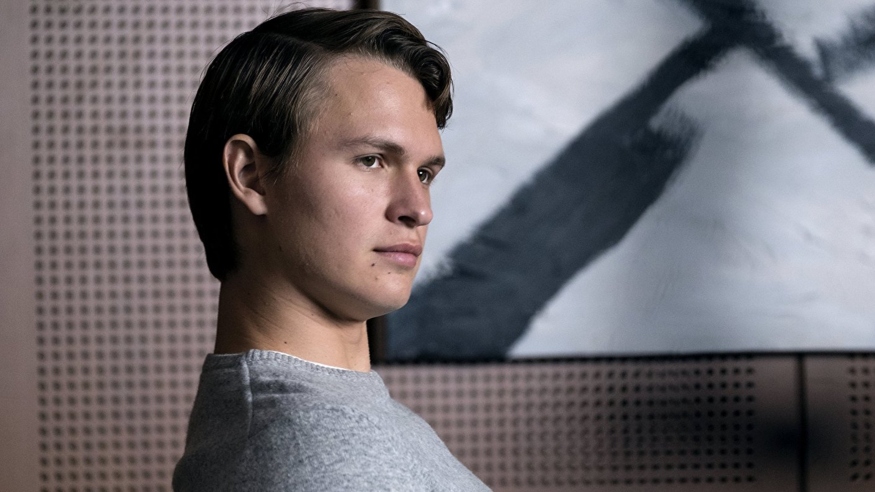Jonathan was a complicated movie for Ansel Elgort.
Not only does he play twin brothers Jonathan and Jon, but they’re complete opposites who live separate lives inside the same body.
Basically, one goes out in the day and then the other goes out at night. Then, at the end of their “shifts,” they leave a video for the other to watch that provides an update on their lives and recent activities.
This delicate balance is disrupted, though, when Jonathan learns that Jon has been dating Elena (Suki Waterhouse) behind his back.
But it wasn’t just “Jonathan’s” plot and characters that Elgort had to get his head around. Because when I sat down with the actor earlier this year to discuss “Jonathan” at the Tribeca Film Festival Elgort admitted that this was actually his first ever independent movie. And working on it made quite the impact.
“This is my first indie movie. I liked this. I feel like I was part of it rather than just a piece of it. Sometimes you feel just like a piece of the puzzle. Which is fine. Because you are.”
“But here I felt like … I didn’t even have a trailer, you know? I was on set and watching it all go down.”
“It was my first time working with a first time director, the DP hadn’t worked on so much, too. But it felt cool and young. It was great.”
“I really liked coming to work every day. I got into acting, I am supposed to love my job. But I don’t always feel like that. Which is crazy. Which is bad, too.”
“But sometimes it is too commercial. There are too many big-wigs. There were no big wigs on this. This was just a bunch of kids making a movie.”
For Waterhouse, the appeal of “Jonathan” was obvious. “It is like a weird episode of ‘Black Mirror.’ You just didn’t want to stop reading it. It was so entertaining to get through. I just loved exploring New York through the head of Jonathan.”
But there were deeper, more personal reasons why Waterhouse wanted to do the film.
“I was interested in the theme of the siblings. I have three siblings and I am so involved in their lives.”
“I have had to take a step back and stop inserting myself into their lives. I have had moments where I thought I have relied too much on a sibling. I have put too much on them. I have had to really decide to take a step back.”
Waterhouse also connected with the film’s exploration of depression, too.
“I think there’s a depression in all of us. There’s something that sits there. Whether it is at the forefront everyday …”
“I am sure it is about how we’re all conditioned. Because we are all so deeply brainwashed by whatever we have been conditioned by.”
“Where we’re born. How we grew up. What religion we’re under. Our socioeconomic backgrounds. All these things that are on us. It is deep brain washing. There are all these constructs on whether we have enough or not enough. It is so hard not to feel that heaviness.”
Elgort noted how living in a huge city like New York can increase this burden.
“When you’re in New York or London or one of the city’s that you feel moves so much, when you feel that and you’re not doing sh**. You feel like a loser. You feel like you should be out and about and doing things.”
Waterhouse believes this is evident in “Jonathan’s” depiction of the Big Apple, insisting, “It is an unsexy portrayal of New York. It looks more like it is shot in England.”
You can see if that’s true when “Jonathan” is released in select theaters and On-Demand on November 16.























